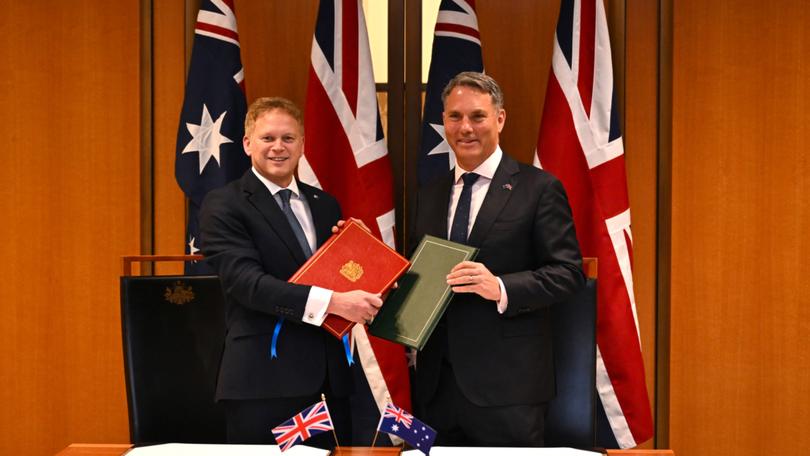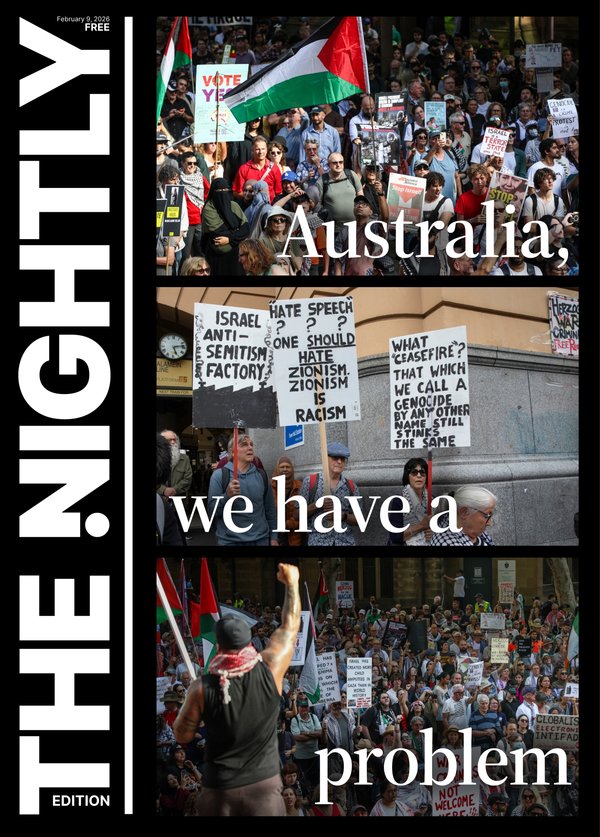Australia and UK sign defence co-operation deal to make it easier to rotate forces between two nations
A deal has been signed between Australia and the United Kingdom to make it easier for forces and submarines to rotate between the two nations.

A deal has been signed between Australia and the United Kingdom to make it easier for forces and submarines to rotate between the two nations as part of the AUKUS alliance.
Defence Minister Richard Marles on Thursday announced the treaty-level defence and security cooperation agreement. He described the deal as being “very practical” and “very timely” given the looming strategic challenges in the Indo-Pacific region.
“This is a status of forces agreement which contains within it a commitment to consult between our two countries when there is a contingency which involves our sovereignty and our security,” Mr Marles said.
Sign up to The Nightly's newsletters.
Get the first look at the digital newspaper, curated daily stories and breaking headlines delivered to your inbox.
By continuing you agree to our Terms and Privacy Policy.“It does reflect a relationship which has become much more strategic, a relationship which has a much bigger national security dimension. To that end, the UK has a much greater presence in the Indo-Pacific than we have seen in a very long time.”
The treaty will make it easier for British submarines to come to Australia, with the vessels to rotate regularly through HMAS Stirling on Garden Island from 2027.
The two countries have already been working together with Australian troops being sent to the UK to help train Ukrainian civilians over Russia’s war on their nation.
UK Secretary of State for Defence Grant Shapps said the deal would “bring us even closer together” and would make the UK a player in the Indo-Pacific.
He said the agreement, which would be ratified and approved by the British Parliament within months, included a new consultation mechanism.
“It is extraordinary, actually, the United Kingdom and Australia didn’t already have a defence cooperation treaty in place,” Mr Shapps said.
“I think one of the most important elements is it describes a mechanism by which we consult when either of our countries are under threat and we have those discussions more formalised then it is at the moment.”
